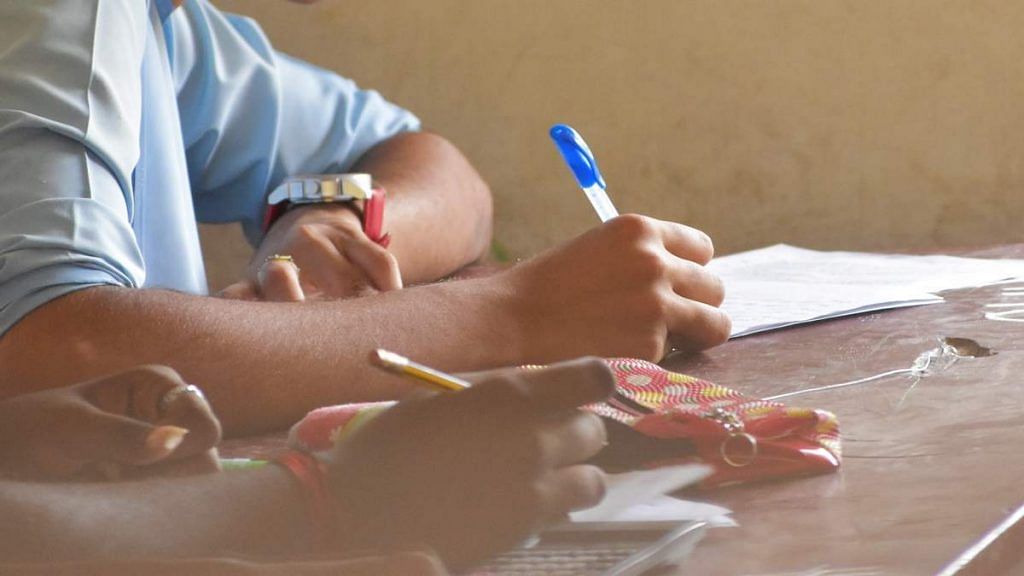Bengaluru: Parents in Karnataka are worried as the BJP government in the state has issued a diktat to schools to teach Kannada as either the first or second language.
The then Congress government in 2015 had passed the Kannada Language Learning Act, 2015, making it compulsory for schools in the state, irrespective of the board they are affiliated to, to teach Kannada either as the medium of instruction or the second language.
The law applies for classes 1 to 10 and was to be implemented in a phased manner. It was to come into effect from the 2017-18 academic session.
On 3 January, state’s Minister for Primary and Secondary Education S. Suresh Kumar met representatives of 150 schools and made it clear that the rule will have to be followed even if the schools are affiliated to IGCSE, ICSE and CBSE boards.
“There is a feeling among some that learning Kannada or teaching it makes one inferior. During my visit to some schools, I noticed that there were no Kannada teachers, while in some schools the teachers were not qualified to teach the language,” Kumar told reporters after the meeting. “Some do not have it in their timetables. It is not acceptable.”
Following the meeting, private schools in the state have decided to implement the rule. That has left apprehensive parents now seeking the intervention of Prime Minister Narendra Modi and Chief Minister B.S. Yediyurappa to relax the rule.
Anxious parents look to PM, CM
While some parents have petitioned the prime minister, others are looking to approach the courts.
One parent who has written to the PMO told ThePrint that he feared it would hamper his child’s marks.
“Despite being a Kannadiga and proud of our rich language, I also know that Kannada is tough to learn,” said the parent on the condition of anonymity.
“My child’s marks could get affected and he would be at a disadvantage compared to a child, say from Maharashtra or Uttar Pradesh, where their language may help them score better.”
Other parents are those who have migrated to the state or are here due to transferable jobs.
“We have immense regard for Kannada and its importance. We understand it should be added in the curriculum,” said Prerna P.K, a parent whose child goes to a CBSE school in Bengaluru. “But parents who may either leave Karnataka after a few years due to their jobs or come to Karnataka midway during their child’s education will find it extremely difficult.
“Our request is to relax the rule in such a way that those who cannot opt for Kannada should at least have another choice like Hindi or Sanskrit,” she added.
Some, however, feel that it will prove advantageous in the long run.
“We are from the North but we believe that a child at a young age can pick up many languages. Why not Kannada?” said Chandrika, whose child studies in an ICSE school in Bengaluru’s central business district. “It will help them if they continue to live in Karnataka as a lot of documents are in Kannada.”
Dr K.G. Jagadeesha, the Commissioner of Public Instruction told ThePrint that the government expects schools to adhere to the rule.
“It is an Act. It has to be implemented. There is no shame in learning a new language,” he said. “Moreover, it will empower the child if he knows more than one language. We have made it clear to all schools to adhere to this law and we expect them to follow our instructions.”
He added that the whole point of making children learn Kannada is to ensure that they learn a new language and are able to communicate in the local language.
“Why do people learn French? So that they can find better opportunities,” Jagadeesha said. “In the same way, why can’t parents teach their child an additional language. Children have the ability to learn four to five languages and it will add to their personality too.”
Also read: Karnataka wants to rename 5 airports after local historical heroes, asks for suggestions
Schools to implement the rule
Karnataka schools have agreed to implement the Act, although grudgingly. They want a certain level of leniency to help accommodate students from all backgrounds.
“When in Karnataka one should learn Kannada. But my personal opinion as an educationist is that learning should be a joyful experience. So why not teach three languages — English, Kannada and Hindi,” said Father Sunil Fernandes, principal of the St Joseph’s Boys High School, an ICSE school in Bengaluru.
“Kannada can be taught as a second language from Class 1 to Class 8. Students of Class 9 should be given an option to choose the second language they are good at, be it Kannada or Hindi or any other third language. We suggest that it should not be mandatory for the board exams,” he added.
Mansoor Ali Khan, board member of Delhi Public School (DPS) that follows the CBSE syllabus, said the three-language policy would be a better option.
“We suggested that all three languages, English, Kannada and others (such as Hindi, French, German) be given equal weightage. All of them should be given 100 marks,” Khan told ThePrint. “That way, all languages will have the same importance and no language will get preferential treatment. However, this solution seems to have not been considered.”
Shashi Kumar, general secretary of the Karnataka Associated Management of Unaided Schools (KAMS), also batted for the three-language formula.
“We all will implement Kannada as the second language in good spirit but we have suggested that the state government communicate to the HRD ministry to make a provision for a third language,” Kumar said. “That way children from other states and countries will have an option of another language at least. They are yet to act on this.”
Also read: Kannada becomes both hipster and political
